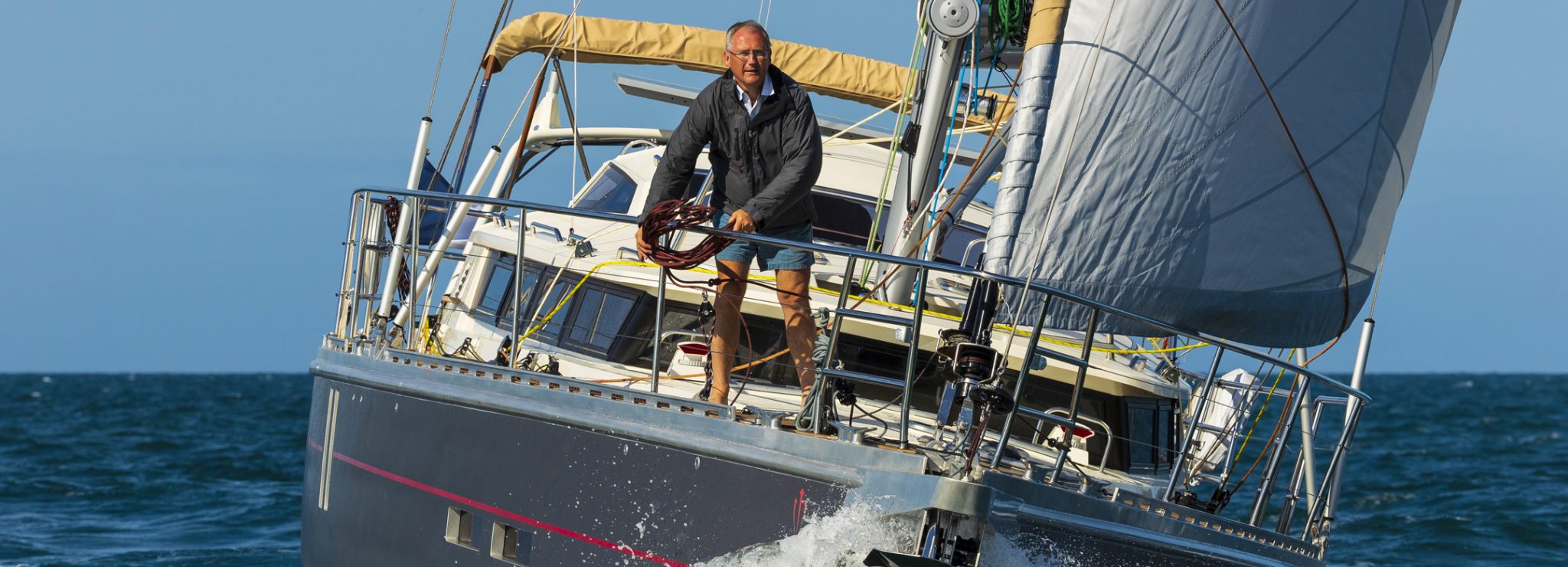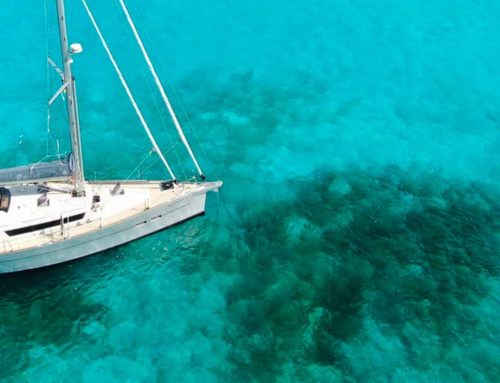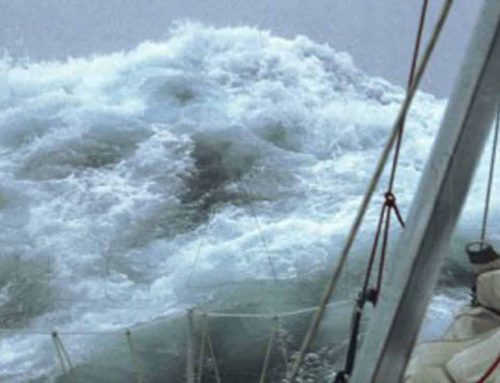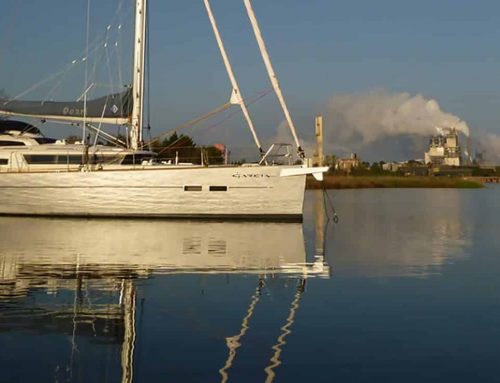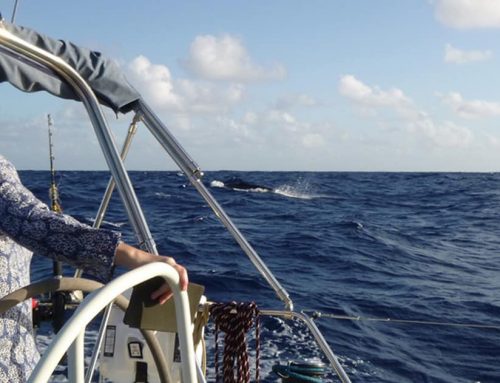This chronicle is the sixth — and the last of this series — written by British sailor, author and adventurer Pete Goss.
Find the page to all chronicles by clicking here: Long time cruising, a voyage of many highlights
Discover more about Pete Goss by visiting his official website.
In this sixth – and last – article in the chronicle he has kindly agreed to write exclusively for Garcia Yachts, British adventurer and sailor Pete Goss considers the risk-benefit ratio, for people running a long term blue water sailing project. He demonstrates how far “giving yourself permission to go” will permit you to “fulfill a chapter that gives life long memories”.
Looking back my previous articles have broadly covered what I wanted to share. To further expand would only lead to a book of minutiae that can easily be found else where. My hope is that I have left you with the following themes: follow your dream, choose the right boat, learn as you go, avoid deadlines, have fun, make friends and a life affirming voyage is yours to be had.
Everyone has dreams for they are effortlessly. For many people dreams can unfortunately encourage life to slip by until it’s too late. Others, the few, find the path less travelled irresistible and are compelled to drag their dreams, often kicking and screaming into reality. A reality that calls for single minded purpose and a healthy dose of courage.
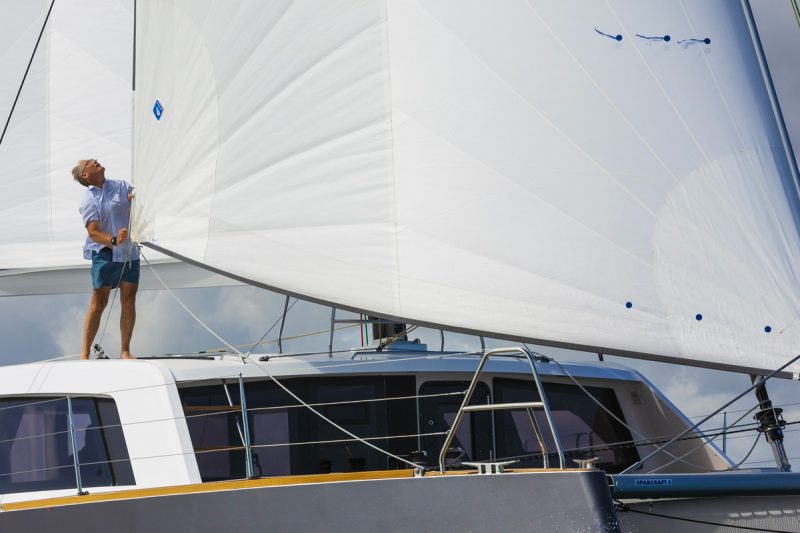
Give yourself permission to go
In this article I thought I might lay down some strategies to help as you peer over the edge, gulp and rightly falter at the abyss. It really doesn’t have to be like that for there are all sorts of ways to create the right parachute or to ease you into it in a less dramatic manner. That leap need not be a stomach turning gamble that could compromise your broader life. It can and should be the start of a wonderfully fulfilling chapter that gifts life long memories. First though, often after a lifetime of responsibilities, you have to consciously give yourself permission to go.
With that permission it helps to first consider your immediate orbit. Those touch stones that give meaning to life from family to friends and work colleagues. Appreciate that they may struggle to fully comprehend your yearning for the freedom of a clear horizon. Help them grasp it so they understand that rather than abandoning them you’re taking strength from their support. Talk to them, gift appropriate books, let them be a part of it with meaningful input. Take them sailing to share your passion and actively demonstrate that safety is top of the list. Connect them as a group through a launch party and take them with you through a honest blog that shares the ups and downs.
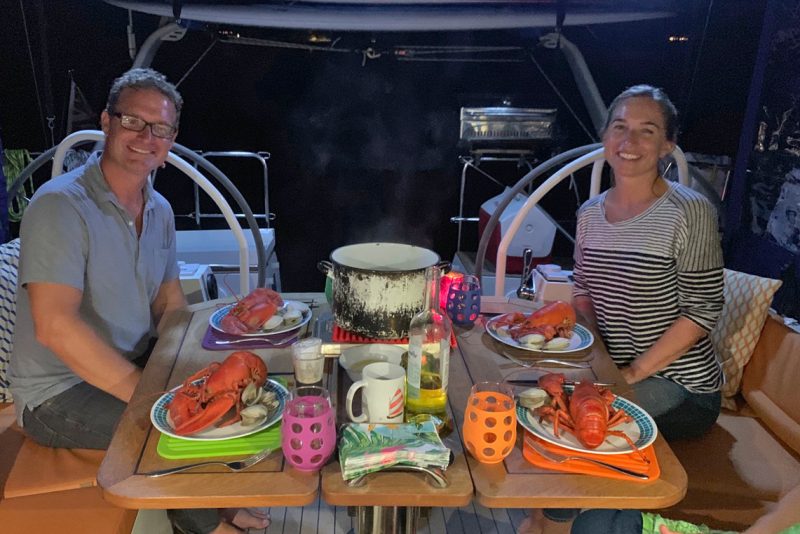
Inviting them to join you for holidays
Empathy settles all manner of emotions so imbued them with the same excitement that you hold for the trip. You can easily gift this by inviting them to join you for holidays. Our daughter supported us and kind of ‘got it’ until she joined us in the Bahamas. After a few days she took Tracey aside to say how she now fully understood, empathised and was proud of her Mum for what she had had the courage to do. There’s really no need for the tragedy of family and friends being left to resent the biggest thing in your life.
Reassure them that thanks to modern communications the days of disappearing over the horizon for months on end are gone. With modern aircraft, apart from the ocean crossings, you will rarely be more than twenty four hours from home. On an Atlantic crossing a decent boat of forty to forty five feet shouldn’t ever be more than a diminishing ten days from land. Appoint a trusted friend to hold the reins over the short term. Empower them with a crisis plan that covers communications and a prioritised contact list. Discuss every scenario to ensure they are happy and confident with their role. Let’s not forget that although an Ocean crossing is a big deal its actually a small part of a cruisers calendar. Of our two and a half year cruise only three weeks were spent crossing the Atlantic. Some partners choose to miss out the ocean crossings, it’s what works for you that counts.
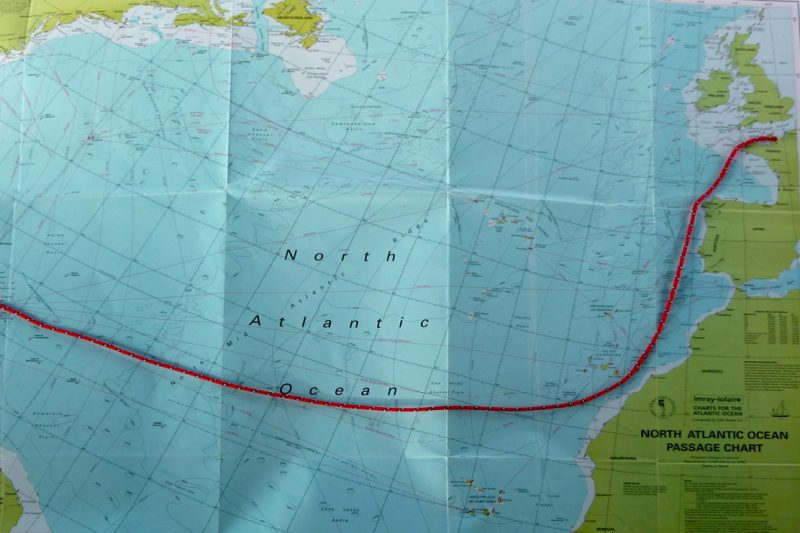
Not more than ten days from land
Consider those on board by fully understanding motivations, reservations and needs. Don’t be rigid, have honest reviews every few months where you compare assumptions with reality. Don’t cry over mistakes, celebrate the lessons and embrace changing aspirations that come with experience. Let humour draw out the little things, after all it’s a marriage between the two of you and the boat. Care not what others think or do for this new life is about self expression.
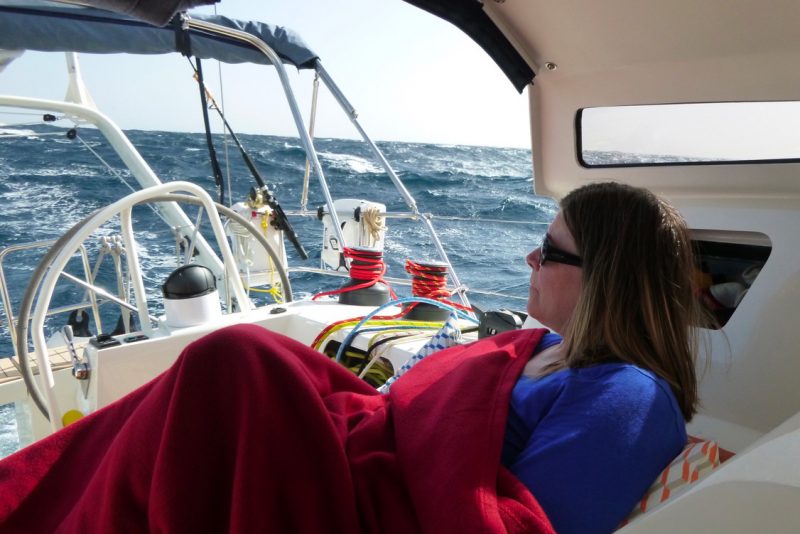
A marriage between you and the boat
Don’t set sail until you have put the correct form of support in place and tested it. Above all do it on your own terms, departure need not be the start date. You might choose to cruise locally until any wrinkles in the boat, its systems and your ability are ironed out. Go on courses from medical to sail repairs, engine, weather and navigation. When you do set off you can choose to start with baby steps which become strides as you grow. Inevitably, as knowledge dispels fear, there will come a time where you can’t wait to tackle an ocean.
Join like minded people such as the Ocean Cruising Club, or sign up to something like the ARC Transatlantic Rally which is an amazing event, or the Grand Large Yachting World Odyssey. Something shared is something halved, buddy boating might be your thing, we thoroughly enjoyed taking on the Intracoastal Waterway (USA) with Ian and Michelle who are now life long friends through shared endeavour. Any time spent with experienced cruisers will be a forum to download ideas.
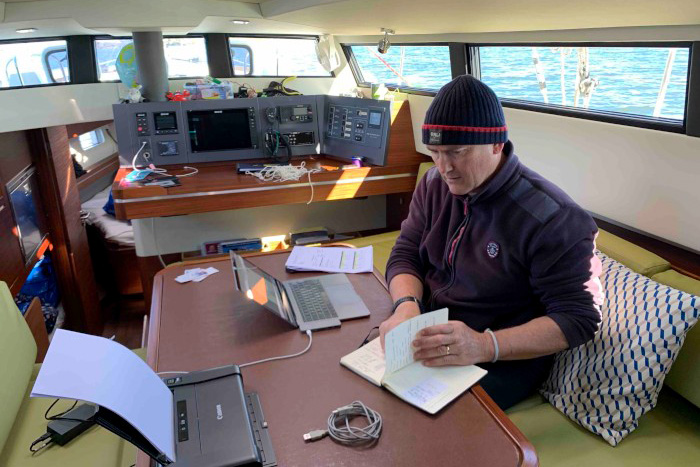
Something shared is something halved
You could hire an ocean skipper for a dedicated course on your boat. Don’t talk about emergency tillers actually set yours up and make a passage. Service your engine under the guidance of an engineer, practice man overboard as a couple, go through basic routines and refine things like dinghy launching and sail handling.
Discover your strengths and play to them as you evolve as a team, who should be on the helm and foredeck for anchoring, who is best to wrestle the spinnaker pole and so on. How do you make decisions, will you have a red card system, define areas of responsibility on board. Most importantly don’t project your aspirations onto others as we are all different. Fold these differences into the programme so that it satisfies all.
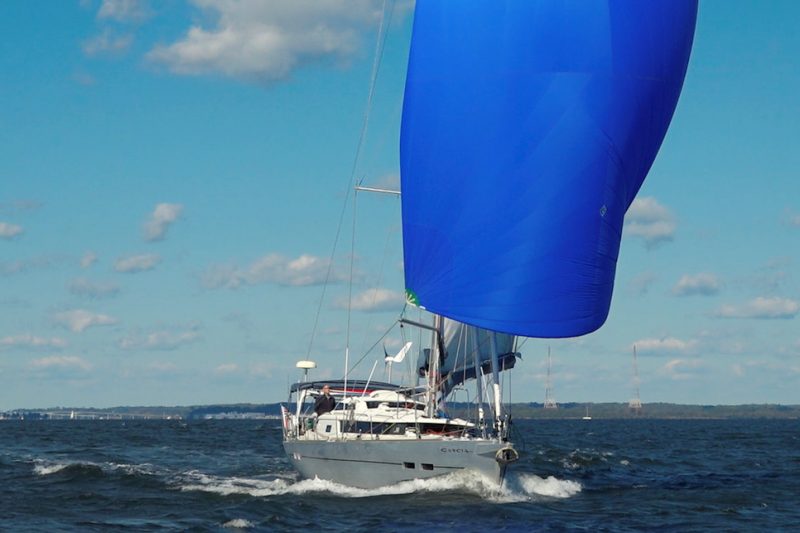
Who is best to wrestle the spinnaker pole
Don’t lose sight of why you set out on this journey, it mustn’t feel like a job of work, the boat is there to serve you. When we set off our pace was too fast and we became weary. A recalibration set the tone for the rest of our time on board. Be kind to yourselves, measure progress by your own bench mark not others. Look back and recognise how far you have come from that first heart pounding time you left the dock.
Boats are always ready but never prepared, there comes a time when you just need to take a deep breath and enjoy the freedom of letting the lines go. You’ve done the hard yards and the fun is about to begin. Fill your boat with toys to explore and enjoy this new lifestyle. A lifestyle that has you living in the moment with endless variety from nature to locations, cultures and people. It’s hugely fulfilling and I wish you fair winds for wherever your voyage may take you.
